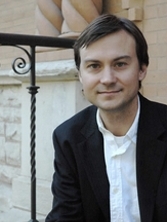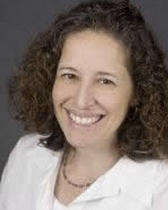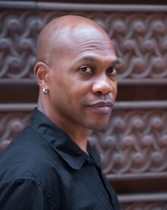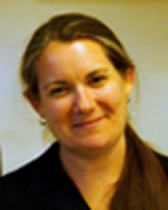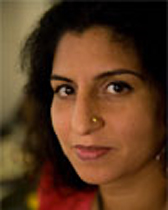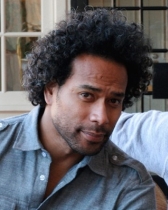Affiliated Faculty
Michael J. Allen (Ph.D., Northwestern University) researches U.S. politics and diplomacy in the 20th Century. His book Until The Last Man Comes Home: POWs, MIAs, and the Unending Vietnam War (University of North Carolina Press, 2009) examined the politics of loss that emerged from American defeat in the Vietnam Wars through a history of the POW/MIA movement. His current work-in-progress New Politics: The Imperial Presidency, The Pragmatic Left, and the Problem of Democratic Power, 1933-1981 treats evolving left-liberal relations to presidential power in the postwar era. Focused on the interplay between leading left-liberal thinkers, grassroots activists, beltway politicians, and presidential politics, it argues that growing skepticism toward the presidency on the political left led to the realignment (and polarization) of U.S. party politics, and a broader retreat from liberal reform since the 1960s.
Kathleen Belew is a historian, author, and teacher. She specializes in the history of the present. She spent ten years researching and writing her first book, Bring the War Home: The White Power Movement and Paramilitary America (Harvard, 2018, paperback 2019). In it, she explores how white power activists created a social movement through a common story about betrayal by the government, war, and its weapons, uniforms, and technologies. By uniting Ku Klux Klan, neo-Nazi, skinhead, and other groups, the movement mobilized and carried out escalating acts of violence that reached a crescendo in the 1995 bombing of Oklahoma City. This movement was never adequately confronted, and remains a threat to American democracy. Her next book, Home at the End of the World, illuminates our era of apocalypse through a history focused on her native Colorado where, in the 1990s, high-profile kidnappings and murders, right-wing religious ideology, and a mass shooting exposed rents in America’s social fabric, and dramatically changed our relationship with place, violence, and politics (Random House).
Belew has spoken about Bring the War Home in a wide variety of places, including The Rachel Maddow Show, The Last Word With Lawrence O’Donnell, AC 360 with Anderson Cooper, Frontline, Fresh Air, and All Things Considered. Her work has featured prominently in documentaries such as Homegrown Hate: The War Among Us (ABC) and Documenting Hate: New American Nazis (Frontline). Belew is an Associate Professor of History at Northwestern University. She earned tenure at the University of Chicago in 2021, where she spent seven years. Her research has received the support of the Chauncey and Marion Deering McCormick Foundation, the Andrew W. Mellon Foundation, and the Jacob K. Javits Foundation. Belew earned her BA in the Comparative History of Ideas from the University of Washington, where she was named Dean’s Medalist in the Humanities. She earned a doctorate in American Studies from Yale University.
Belew has held postdoctoral fellowships from the Center for Advanced Study in the Behavioral Sciences at Stanford University (2019-20), Northwestern University, and Rutgers University. Her award-winning teaching centers on the broad themes of history of the present, conservatism, race, gender, violence, identity, and the meaning of war. Belew is co-editor of and contributor to A Field Guide to White Supremacy, and has contributed essays to Myth America and The Presidency of Donald J. Trump: A First Historical Assessment.
Shana Bernstein (Ph.D., Stanford University) specializes in 20th Century U.S. History, particularly comparative race and ethnicity. Before joining Northwestern's faculty, where she teaches in the Legal Studies, American Studies, and Asian American Studies Programs as well as the History Department, she was Associate Professor of History at Southwestern University in Texas. She is a Distinguished Lecturer for the Organization of American Historians and a former Public Voices Fellow with Northwestern's OpEd Project. She has won fellowships from the Mellon Foundation and the Huntington Library, among other institutions. Her first book, Bridges of Reform: Interracial Civil Rights Activism in Twentieth-Century Los Angeles (Oxford University Press, 2011), reinterprets U.S. civil rights activism by revealing its roots in the interracial efforts of Mexican, Jewish, African, and Japanese Americans in mid-century Los Angeles, and by showing how the early Cold War facilitated, rather than derailed, some forms of activism. Bernstein is currently working on a project examining the history of strawberries from an environmental, consumer, and worker perspective.
James S. Bielo is an anthropologist of religion, with an ethnographic focus on Christianity in the United States. His research interests center on materiality and language as lived resources in religious life, and the intimate relations of religion and power.
Kevin Boyle (Ph.D., University of Michigan), William Smith Mason Professor of American History, is an historian of the twentieth century United States, with a particular interest in modern American social movements. His publications include The UAW and the Heyday of American Liberalism, 1945-1968; Muddy Boots and Ragged Aprons: Images of Working-Class Detroit, 1900-1930 (with Victoria Getis); Organized Labor and American Politics, 1894-1994; and Arc of Justice: A Saga of Race, Civil Rights and Murder in the Jazz Age, which received the National Book Award for nonfiction, The Chicago Tribune’s Heartland Prize, and the Simon Weisenthal Center’s Tolerance Book Award. It was also a finalist for the Pulitzer Prize and was selected for community-wide reading programs in the Detroit metropolitan area and the State of Michigan. He has published essays and reviews in The Chicago Tribune, The Washington Post, The New York Times, The Baltimore Sun, The Detroit Free Press, and Inc, The Rotarian, and Cobblestone magazines. He has held fellowships from the Rockefeller Foundation, the Fulbright Foundation, the American Council of Learned Societies, the National Endowment for the Humanities, the John Simon Guggenheim Foundation, and the Andrew Carnegie Corporation.
Boyle is currently at work on two book projects: The Splendid Dead, a micro-history of political extremism and repression in the early twentieth century; and The Splintering, a narrative history of the 1960s. He teaches undergraduate courses on modern United States history, the civil rights movement, and racial violence, and graduate courses in twentieth century American history, working-class history, and narrative history.
Nicolette Bruner (Ph.D. in English Language and Literature, University of Michigan; J.D., University of Michigan Law School) is Assistant Professor of Instruction at the Center for Legal Studies and the Program in American Studies. Prior to joining Northwestern’s faculty, she was a postdoctoral fellow with the Stevanovich Institute on the Formation of Knowledge at the University of Chicago and taught in the Department of English at Western Kentucky University.
Bruner’s research explores how the law shapes the way humans understand and interact with the nonhuman entities and systems around them. Her current book project, Thing People: Living with Corporations and Other Nonhumans, examines how the legal doctrine of corporate personhood offers a framework for articulating the rights and responsibilities of other nonhuman entities, including animals, plants, rivers, and robots. She also teaches and works in American literature, corporate law and policy, jurisprudence, and the environmental humanities.
Geraldo L. Cadava (Ph.D., Yale University) is an historian of the United States and Latin America. He focuses on Latinos in the United States and the U.S.-Mexico borderlands. Originally from Tucson, Arizona, he came to Northwestern after finishing degrees at Yale University (Ph.D., 2008) and Dartmouth College (B.A., 2000).
Cadava has just published The Hispanic Republican: The Shaping of an American Political Identity, from Nixon to Trump (New York: Ecco, 2020) about the history of Hispanics and the Republican Party since the 1960s. He has been awarded fellowships for this book from the Stanford Humanities Center, the Center for Advanced Study in the Behavioral Sciences at Stanford University, and the Radcliffe Institute for Advanced Study at Harvard University. His essays on this topic have appeared in the Los Angeles Times and the NACLA Report on the Americas, and on TheAtlantic.com, WashingtonPost.com, and OZY.com.
Cadava's first book, Standing on Common Ground: The Making of a Sunbelt Borderland (Harvard University Press, 2013 in hardcover, 2016 in paperback), was about the Arizona-Sonora borderland since World War II. It won the Frederick Jackson Turner Award, given annually by the Organization of American Historians.
Writing related to Standing on Common Ground was published by the Journal of American History, The New York Times, the San Francisco Chronicle, and the Immigration Policy Center. The book was supported by fellowships from the Ford Foundation, the Woodrow Wilson National Fellowship Foundation, Mellon Mays Graduate Initiatives, and a Huggins-Quarles Prize from the Organization of American Historians.
Cadava teaches courses on Latinx History, the American West, the U.S.-Mexico borderlands, migration to and from Latin America, and other topics in U.S. history, including Watergate, the 2016 election, and the musical Hamilton.
Anthony Chen (Ph.D., University of California, Berkeley) is a political and historical sociologist. He is interested in American political development and public policy since the New Deal, with a special focus on the politics of social policy, civil rights, health care, and economic regulation. In addition to his appointments in Political Science and Sociology, Chen is a Faculty Fellow at the Institute for Policy Research at Northwestern. Before joining the faculty at Northwestern, Chen was on the faculty for eight years at the University of Michigan.
History and Gender and Sexuality Studies
Phone number: 847-491-7560
Office location: 1922 Sheridan Road
fenrich@northwestern.edu
Lane Fenrich (Ph.D., Northwestern University) is Distinguished Senior Lecturer in Gender and Sexuality Studies and Assistant Dean for First-Year Students. Fenrich is a cultural historian of the twentieth-century United States, specializing in the period since the Second World War. He has received a number of major teaching awards, including the Arts and Sciences Alumni Teaching Award in 2000 and the Weinberg College Student Advisory Board Community Building Award in 2007. He was also named the Charles Deering McCormick University Distinguished Lecturer in 2008. Lane Fenrich regularly teaches one of Gender and Sexuality Studies’ gateway courses, "Sexual Subjects: Introduction to Sexuality Studies" as well as a very popular course on "U.S. Gay and Lesbian History."
Jay Grossman (Ph.D., University of Pennsylvania) teaches and writes about eighteenth- and nineteenth-century American literature and culture, especially Emerson and Whitman, the history of the book, and the history of sexuality. His book, Reconstituting the American Renaissance: Emerson, Whitman, and the Politics of Representation, was published in Spring 2003 by Duke University Press. He has also co-edited (with Betsy Erkkila), Breaking Bounds: Whitman and American Cultural Studies (Oxford, 1996). For his current work, a cultural biography of the literary critic and political activist F. O. Matthiessen, he has received fellowship support from the ACLS, and in 2002-03 he was a Visiting Scholar at the American Academy of Arts and Sciences in Cambridge, Massachusetts. Four pieces from this biography have appeared in print: “Queer Contingencies of Canonicity: Dickinson, Whitman, Jewett, Matthiessen” in Whitman & Dickinson: A Colloquy (Iowa, 2017); “’Autobiography Even in the Loose Sense’: F. O. Matthiessen and Melville” in Leviathan: A Journal of Melville Studies (2011); “’Profession of the calamus’: Whitman, Eliot, Matthiessen” in Leaves of Grass: The 150th Anniversary Conference (Nebraska, 2008); and “The Canon in the Closet: Matthiessen’s Whitman, Whitman’s Matthiessen” in American Literature (1998).
African American Studies and Performance Studies
Phone number: 847-467-2756
Office location: 70 Arts Circle Drive, Room 5-155
e-johnson10@northwestern.edu
E. Patrick Johnson (Ph.D., Louisiana State University) is Dean of the School of Communication and Annenberg University Professor at Northwestern University. A member of the American Academy of Arts & Sciences, Johnson’s work has greatly impacted African American Studies, Performance Studies, and Gender and Sexuality Studies. He is the author of several books, including Appropriating Blackness: Performance and the Politics of Authenticity (2003); Sweet Tea: Black Gay Men of the South—An Oral History (2008); Black. Queer. Southern. Women.—An Oral History (2018); and Honeypot: Black Southern Women Who Love Women (2019), in addition to a number of edited and co-edited collections, essays, and plays.
Robert Orsi (Ph.D., Yale University) is Professor of Religious Studies and the first holder of the Grace Craddock Nagle Chair in Catholic Studies. Orsi studies American religious history and contemporary practice and American Catholicism in both historical and ethnographic perspective, and he is widely recognized for his work on theory and method for the study of religion. In 2002-2003, he was president of the American Academy of Religion. Orsi has held fellowships from the Guggenheim Foundation, the National Endowment for the Humanities, and the Fulbright Foundation, and he is a member of the American Academy of Arts and Sciences. In 2010 Orsi received the E. Leroy Hall Award for Teaching Excellence, the highest recognition for teaching offered by Northwestern's Weinberg College of Arts and Sciences, and in 2012, the Charles Deering McCormick Teaching Professorship, Northwestern’s highest teaching award. Professor Orsi’s books have won numerous prizes. In 2020-2021, he is a visiting fellow at the Notre Dame Institute for Advanced Studies and the Cushwa Center for the Study of American Catholicism at Notre Dame University. Please see Professor Orsi's website for information about his current research, selected publications, and teaching.
Amy Partridge (Ph.D. in Performance Studies, Northwestern University) is Associate Professor of Instruction and Associate Director of the Gender and Sexuality Studies Program. Partridge's teaching and research interests include topics in the history of medicine, sexuality studies, feminist science studies, gender and labor history, and cultural studies. A former Research Associate at the Wellcome Institute for the History of Medicine in London, her research focuses on popular public health education campaigns, past and present. She is currently working on two book-length projects: Performing the Sanitary Idea in Victorian Britain, which examines the use of popular performance forms in public health campaigns targeted at working-class audiences in Victorian Britain, and a documentary history of the 1970s Women's Health Movement in the United States. Prof. Partridge teaches courses on "Public Health and Its Discontents," "Gender, Sexuality & Health Activism," "Female Pleasure: Feminism & the Sexological Tradition ~1910 to Present," "The Women's Health Movement: 1970 to Present," "Feminist & Queer Activism after 9/11," "Gender, Sexuality, and Technoscience" as well as a First-Year Seminar on "Our Bodies Ourselves" and "Feminist & Queer Activism 1960s to the Present."
Bill Savage (Ph.D., Northwestern) teaches and conducts research in several areas of 20th and 21st Century American literature, literary criticism, and hermeneutic theory. He currently focuses on a variety of Chicago textual traditions (in fiction, prose, nonfiction, comic books, film, and political and commercial ephemera) and the construction of American identity in the dynamic of public, semi-public, and private spaces, especially the grid of the streets and the culture of saloons before and after Prohibition. His most recent book-length project is an introduction to and annotation of George Ade’s 1931 book, The Old-Time Saloon: Not Wet, Not Dry—Just History (University of Chicago Press, 2016).
Savage is currently researching a book on this history of Chicago’s street naming and numbering systems, tentatively entitled The City Logical v. the City Beautiful: Why Edward Brennan is Way More Important than Daniel Burnham. (The subtitle, he acknowledges, will probably be dialed back a bit.) He regularly contributes articles and essays to the Chicago Reader and book reviews to the Chicago Tribune, and participates in Chicago’s live lit scene having read essays at The Paper Machete, The Frunchroom, 20x2, Tuesday Funk, and other venues. Savage teaches adult education seminars at the Newberry Library of Chicago, and he is a series editor for Chicago Visions and Revisions, a nonfiction series from the University of Chicago Press. Savage teaches the courses “American Novel: Defining America,” “Baseball in American Narratives,” and “’The Chicago Way: Urban Spaces and American Values."
The word “Chicago” appears eleven times in this profile, and not by mistake, as he is a lifelong resident of Rogers Park, the city’s northernmost neighborhood.
Shalini Shankar is a sociocultural and linguistic anthropologist has conducted ethnographic research with South Asian American youth and communities in Silicon Valley, with advertising agencies in New York, San Francisco, and Los Angeles, and with spelling bee participants and producers in various US locations.
Shankar’s book in preparation, Beeline: What Spelling Bees Reveal about the New American Childhood (Basic Books), foregrounds generation Z, the “selfie generation.” She analyzes the convergence of immigration, “brain sports,” and the shifting media landscape to illustrate the increasingly competitive nature of childhood and how it plays out on broadcast and social media. The book is based on qualitative research funded by the National Science Foundation (BCS-1323769) and the Wenner-Gren Foundation. The project investigates how spelling bees have grown into a mass-mediated, sport-like spectacles, factors contributing to the South Asian American winning streak, and how this model of competition is proliferating worldwide. It is comprised of interviews and observations with spellers and their families, spelling bee officials, lexicographers, and media producers, as well as archival research on spelling competitions and their media broadcasting.
Shankar's previous book, Advertising Diversity: Ad Agencies and the Creation of Asian American Advertising (Duke University Press, 2015) is based on ethnographic fieldwork funded by the National Science Foundation (BCS 0924472) in Asian American and general market agencies in New York, Los Angeles, and San Francisco. The book considers how, in a "post-racial" era, race has taken center stage in advertising, especially in response to the diversity reported in the 2010 census. It considers the process of advertising development and production from political economic as well as semiotic perspectives to investigate how ethnoracial difference is negotiated in corporate America, among ad executives, and represented in ads.
Shankar’s first book, Desi Land: Teen Culture, Class, and Success in Silicon Valley (Duke University Press, 2008), focuses on Desi (South Asian American) youth in socieconomically and racially diverse high schools and analyzes how their everyday cultural and linguistic practices intersect with their immigration history and class status to impact their educational and career paths. One of the key questions she examines is what “success” means for Desis of different class and immigration backgrounds, and how such meanings articulate with this group’s broader characterization as a “model minority.”
African American Studies and Asian American Studies
Phone number: 847-467-0448
Office location: Crowe Hall #5-133
n-sharma@northwestern.edu
Nitasha Tamar Sharma (Ph.D. in Anthropology, University of California, Santa Barbara) is Associate Professor of African American Studies and Asian American Studies; Director of Graduate Studies, Department of African American Studies; Director, Asian American Studies Program (2017-21); and Charles Deering McCormick Professor of Teaching Excellence. Sharma's academic activities are based on an interdisciplinary, comparative, and ethnographic approach to the study of difference, inequality, and racism. The central goal of her teaching, research, and writing is to develop models for multiracial alliance building by zeroing in on cultural phenomena that unearth and challenge the factors that structure contentious race relations.
Nitasha Sharma is the author of Hawaiʻi is my Haven: Race and Indigeneity in the Black Pacific (Duke University Press, August 2021). This ethnography is based on a decade of fieldwork including interviews with 60 people of African descent in the islands, including Black Hawaiians, Black Japanese, and African American transplants from the continental U.S. Two questions frame this project: What does the Pacific offer people of African descent? And how does the racial lens of African Americans illuminate inequalities, including antiBlack racism, in the islands? Bringing Black Studies into conversation with Native Studies, it charts how Hawai‘i’s Black residents including Black hapas negotiate race, indigeneity, and culture. This work speaks to debates in Mixed Race Studies, Comparative Race Studies, and Diaspora Studies to analyze Blackness in the Pacific and offer new theories of belonging that emerge from the intersection of race and indigeneity. Sharma is also the co-editor of Beyond Ethnicity: New Politics of Race in Hawai‘i (University of Hawai‘i Press, 2018).
Her first book, Hip Hop Desis: South Asian Americans, Blackness, and a Global Race Consciousness (Duke University Press 2010), analyzes how second generation members of an upwardly mobile and middle-class immigrant group use hip hop to develop racial—and not just ethnic—identities. The racial consciousness expressed by these hip hop artists as “people of color” facilitates the development of multiracial coalitions that cross boundaries while explicitly acknowledging “difference.”
Sharma teaches courses on the following topics: Hip Hop; Asian/Black Relations in the U.S.; The Mixed Race Experience; Race, Crime, and Punishment: The Border, Prisons, and Post-9/11 Detentions; Ethnographies of Immigration, Race, and Immigration; and Race and Indigeneity in the Pacific.
Peter Slevin is a Medill professor who spent a decade on The Washington Post’s national staff and is currently a contributing writer for The New Yorker, focusing on national politics. He teaches classes on politics and the media; the U.S. role in world affairs; and reporting strategies on current events, from the 2020 presidential campaign to the intersection of policing and race in Chicago.
Elizabeth Son (Ph.D., American Studies, Yale University) is an Associate Professor in the Department of Theatre and Director of the Interdisciplinary PhD in Theatre and Drama program. Her research focuses on the interplay between histories of gender-based violence and transnational Asian/Asian American performance-based art and activism. She teaches courses on race, gender, and performance; trauma, memory, and violence; and theatre and social change in U.S. and transnational contexts. She is the author of the award-winning book Embodied Reckonings: “Comfort Women,” Performance, and Transpacific Redress (2018). Her current book project examines the history of Asian American art and advocacy surrounding survivors of domestic abuse, sexual violence, and human trafficking.
Larry Stuelpnagel is an Emmy award winning reporter who teaches broadcast and multimedia reporting. He is also the faculty advisor to the student produced Northwestern News Network, the award winning student produced newscast for the web and TV.
Stuelpnagel is a former senior correspondent/anchor at WNJN-WNET (PBS), New York/New Jersey; former news director/anchor at KHSL TV-Radio (CBS), Chico, California; former reporter at KRCR (ABC), Redding, California; former instructor at California State University, Chico; former instructor at Butte Community College, Oroville, California; and former president of the Philadelphia Press Association.
Sarah McFarland Taylor is an associate professor of Religious Studies, specializing in the study of media, religion, and culture; religion and the environment; American culture and consumerism. Taylor also teaches in Northwestern’s Program in Environmental Policy and Culture and the popular American Teenage Rites of Passage course in the American Studies Program. She holds a Bachelor's degree from Brown University, a Master's degree from Dartmouth College, and a doctorate in Religion and American Culture from the University of California, Santa Barbara. She has recently completed an additional advanced degree in “Media History, Philosophy, and Criticism” from the Graduate School of Media Studies at The New School for Public Engagement. Her current book project examines the marketing of Mars colonization and the rhetoric of "manifest destiny" and promised "new earth" in space expansionist capitalism.
Ivy Wilson (Ph.D., Yale University) teaches courses on the comparative literatures of the black diaspora and U.S. literary studies with a particular emphasis on African American culture. His book, Specters of Democracy: Blackness and the Aesthetics of Nationalism (Oxford University Press, 2011), interrogates how the figurations and tropes of blackness were used to produce the social equations that regulated the cultural meanings of U.S. citizenship and traces how African American intellectuals manipulated the field of aesthetics as a means to enter into political discourse about the forms of subjectivity and national belonging. Along with recent articles in ESQ, Arizona Quarterly, and PMLA, his other work in U.S. literary studies includes two forthcoming edited books on the nineteenth-century poets James Monroe Whitfield and Albery Allson Whitman. His current research interests focus on the solubility of nationalism in relationship to theories of the diaspora, global economies of culture, and circuits of the super-national and sub-national.
Rebecca Zorach (Ph.D. University of Chicago) teaches and writes on early modern European art (15th-17th century), contemporary activist art, and art of the 1960s and 1970s. Particular interests include print media, feminist and queer theory, theory of representation, African American artists, and the multiple intersections of art and politics.
